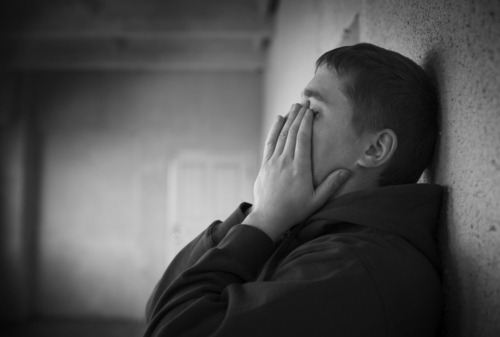
Mental illnesses come in all shapes and forms, from the anxiety monster troubling your brain before an exam to a complex chemical imbalance that goes by the name depression. It’s true that the stigma associated with mental disorders is slowly being eradicated, but so much of society still views mental disorders as something within our control or something logical and easy to solve. So much of society sweeps mental illnesses under the rug labeled “crazy” and so much of it has been buried with the phrase, “you’re just overreacting”. What people don’t realize is that the more you repress a disease without treating it, the stronger it will come back.
Being in the academic system for quite a while, anxiety has become second nature not only for myself but also for so many of you. Being told you’re a great student all your life, only to end up procrastinating due to being a perfectionist who is afraid of failing and getting average grades, really internally frustrates you to the point where you’re hardly making it. I know how hard it has been for me in the past year moving to Canada from a completely different education system. Not only was I in my last year of high school, but I was applying to universities too, which meant I had to adjust in this foreign system, make no mistakes, and continue my streak of grades good enough to get into the top universities here—the pressure was unforgivable. Having three panic attacks in the span of a few months took a toll on my mental health—I couldn’t get out of bed to study, I was depressed beyond understanding, every day ended in tears and the next day went by slower than the last… In the end however, you begin to latch onto the smallest of positive outcomes, no matter how insignificant it may seem to others.
In Canada, suicide accounts for 24% of all deaths among 15-24 year olds, which is unfortunately a pretty big number. The reason for this ranges from suppressing internal struggles due to societal pressure to bullying, harassment, academic pressure, etc.
Bipolar disorder, schizophrenia, depression, and anxiety are just a few of the diseases that plague so many of us today. The worst feeling comes with not knowing why you’re feeling hopeless or upset or hollow; it comes with time passing so slowly coupled with your movements being twice as lethargic and lagged. But all people want to know is why? If we all had the answer to that, we would be well on our way, as far from disorders as possible; however, it is not socially acceptable to lie in bed all day because you cannot find any strength in you to push yourself out of bed. It is not socially acceptable to hand in a paper late and not lose 5% because your fingers couldn’t understand your brain. You must mask your symptoms in order to function in the outside world.
The treatment for mental health needs to become better than what is feebly offered to us right now. Research into mental health problems should be just as rigorous as research for cancer—it should be given its due diligence. A balance needs to be constructed between being told you’re overthinking your own illness and having it glorified to the point that all everyone is interested in is being your saviour. It is not a problem to be solved overnight—I am still learning how to not let it control me. It requires patience and understanding from those who are willing to stay and help.